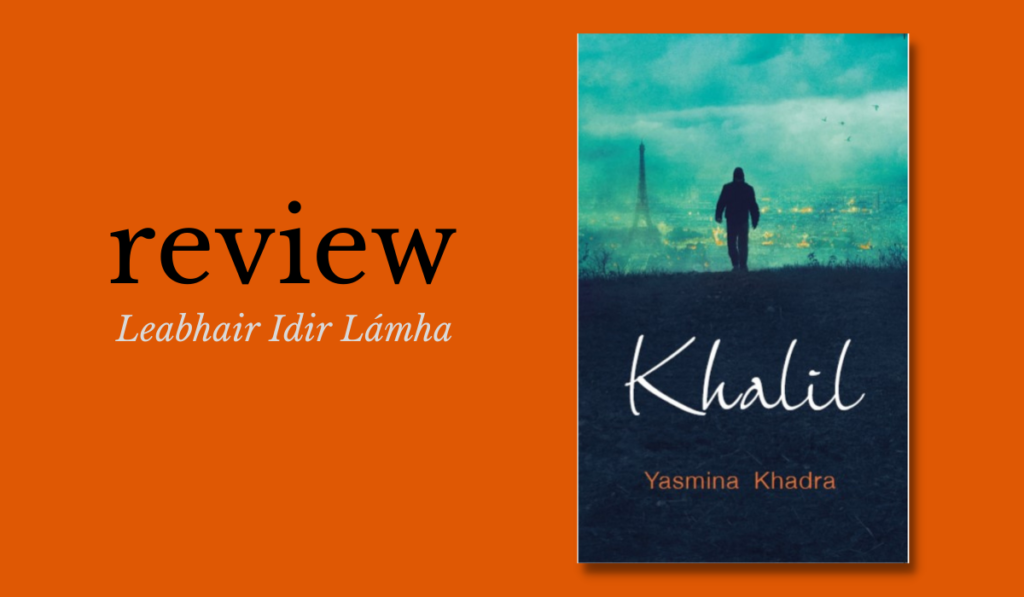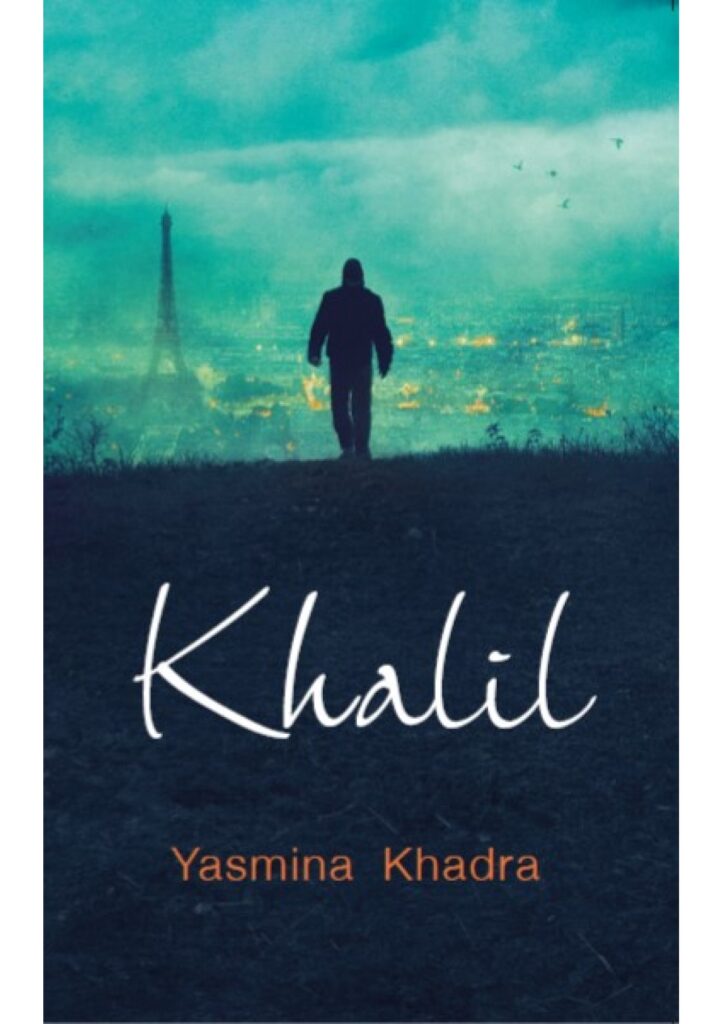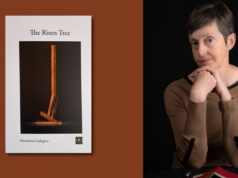
Khalil|Yasmina Khadra|Trans. Máirín Nic Con Iomaire|Barzaz|ISBN 978-1-910945-85-8|€14.95
“Khalil is a journey into the mind of an extremist but one from which we emerge with a new understanding of the intolerance that lies at the root of the problem.” —Cathal Póirtéir
by Cathal Póirtéir
Yasmina Khadra is a best-selling and celebrated writer in the Francophone world, publishing almost forty novels in forty years.
The writer is actually Mohammed Moulessehoul, an ex-Algerian army officer, who decided to adopt his wife’s name as a nom de plume to circumvent army censorship regulations. After moving to live in France in 2001, he decided to keep using the pen name although his true identity became known.
Much of his work is set in Arab societies effected by political violence or civil war. He examines the attractions of radical Islam for young disaffected Muslims and how that has interacted with politics and poverty in a number of Arab countries.

Muslim communities
Khalil is set in France and Belgium among Muslim communities and families living on the fringes of west European societies in poor housing, working in poorly paid jobs. The protagonist is a young, single and disaffected man who has had a troubled youth. He places little value on himself or his life until a radicalised friend encourages him to meet a few charismatic characters, deeply involved in radical Islamist conspiracies.
The story is told in the first person and we follow Khalil as he gradually becomes radicalised and volunteers to take part in an attack on the Stade de France in Paris, now willing to become a martyr and justify his existence.
His suicide vest fails to explode and he has to navigate his way back to Brussels to avoid being found by police or by his fellow terrorists who may think that he chickened out. He has family issues to deal with as well and while he has problems with his father, he dearly loves his twin sister.
Internal and external struggle
Eventually he overcomes his cell’s doubts about his willingness to make the ultimate sacrifice and is chosen for another attack, this time in Morocco. While preparing for his suicide mission an attack on the metro in Brussels kills his twin sister and causes him to engage in serious soul searching and the need to convince his co-conspirators that he is able and willing to complete his mission.
Khalil’s internal and external struggles are the central point of the story.
The vast majority of his friends and people within the Muslim community are opposed to and disgusted by the terrorist attacks on the Stade de France and the Bataclan. When he has to hear moderate condemnation of the violent actions, he is torn between justifying the atrocities and maintaining his cover.
When his friends and family discover his involvement he is shunned by them and driven back to the companionship supplied by the certainty of his fellow zealots in the justice of their cause and methods. Nevertheless the death of his twin sister has affected him deeply and raised questions about what he is doing that no other arguments have.
Anchored in reality
By linking our protagonist with the actual attacks on the Stade de France, the Bataclan or the metro in Brussels, the author anchors the plot and the arguments in a reality that we are all aware of.
The debates Khalil has to engage with, internally and externally, are ones that have a ring of truth to them. While the character uses his views to justify his violence, the author offers the opposition to them that is shared by most of his co-religionists in the story, and in the real world.
Khalil is a journey into the mind of an extremist but one from which we emerge with a new understanding of the intolerance that lies at the root of the problem.
Máirín Nic Con Iomaire‘s translation reads naturally throughout, allowing us to follow both plot and characters without ever being conscious that the book was written in another language. This is the second book from the Barbaz imprint and they are to be congratulated again on an attractive production.

Cathal Póirtéir has specialised in researching, presenting and commissioning Irish interest material in various radio formats and in books, including history, literature and folklore in Irish and English, as well as current affairs and drama.












